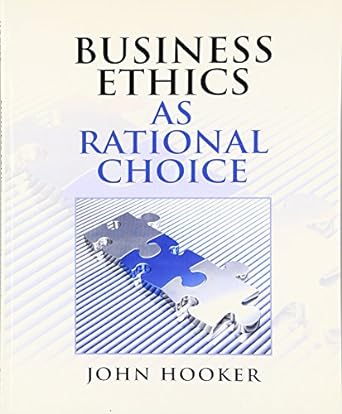A pharmaceutical company has developed a remarkably effective headache remedy and is deliberating whether to market it
Question:
A pharmaceutical company has developed a remarkably effective headache remedy and is deliberating whether to market it over the counter or as a prescription drug. Over-the-counter sales would be more profitable and would reach far more headache sufferers. However, the medication doesn’t ease migraine headaches, the most severe type of headache. In fact, clinical trials suggest that for 10% of migraine sufferers, use of the medication results in twice as many headaches as before.
The effect seems to be permanent, or at least to last as long as the trials. An over-the-counter label could carry a warning to migraine sufferers, but many of them don’t realize that their headaches are migraines. If the drug required a prescription, doctors would dispense it only to patients without migraines. Would over-the-counter sales satisfy the Difference Principle? Hint.
There are two groups to compare when applying the Difference Principle: those with severe cases and those with mild cases.
Step by Step Answer:






